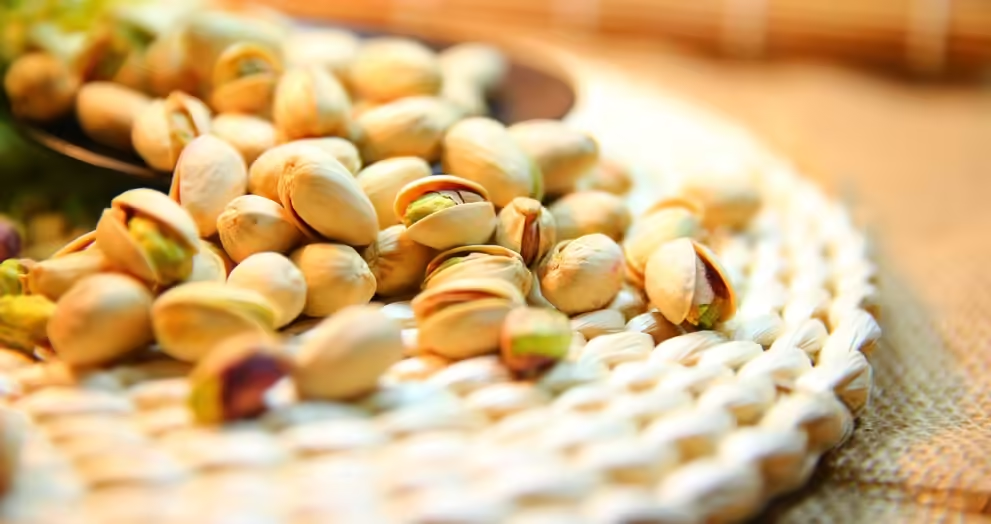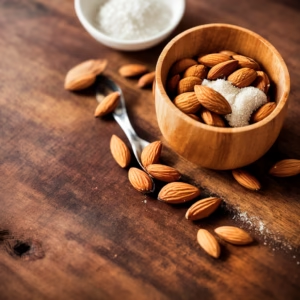Pistachios, often referred to as the “smiling nut,” are a delight for the taste buds and a treasure trove of health benefits. Their unique flavor, vibrant green hue, and the versatility they offer in culinary applications make them a favorite snack for many. However, there are numerous questions surrounding these delectable nuts, such as concerns about their health impacts and nutritional value. In this blog post, we will explore the intricate world of pistachios, addressing key questions like: Are pistachios good for health? Will pistachios make you fat? Why are pistachios salty? And what are the benefits of including them in your diet?
Are Pistachios Good for Health?
Pistachios are nutrient-rich and provide a myriad of health benefits, making them an excellent choice for a healthy diet. They are a source of healthy fats, high-quality protein, vitamins, and minerals. Studies demonstrate that regular consumption of pistachios can support heart health, assist with weight management, and improve overall well-being.
According to a study published in the *Journal of Nutrition*, pistachios are associated with improved lipid profiles and reduced oxidative stress (1). Their high levels of monounsaturated fats can contribute to heart health by lowering bad cholesterol levels and raising good cholesterol. Furthermore, they are rich in antioxidants, which play an essential role in combating inflammation and cellular damage.
Will Pistachios Make You Fat?
One common concern about snacks, especially nuts, is whether they contribute to weight gain. The answer, however, is more complex than a simple yes or no. While it’s true that pistachios are calorie-dense, the way they are consumed often determines their impact on weight.
Research suggests that incorporating nuts, including pistachios, into a balanced diet does not necessarily lead to weight gain. A study in the *British Journal of Nutrition* showed that participants who included nuts in their diets maintained their weight and experienced no negative impacts on body composition (2). Furthermore, pistachios can enhance satiety and prevent overeating due to their protein and fiber content. Consuming them in moderation as part of a balanced diet is key.

Why Are Pistachios Salty?
Many of the pistachios found in stores are roasted and lightly salted to enhance their flavor. Salt is added to improve taste and can make pistachios more enjoyable as a snack. However, the sodium content can be a concern for those monitoring their salt intake.
For those wondering why they are salty at all, it’s important to note that salt accentuates the natural flavor of the pistachio nut, making it a more addictive and satisfying snack. However, there are unsalted options available for individuals seeking to limit their sodium consumption. If you’re concerned about salt intake yet still want to enjoy pistachios, opting for raw or dry-roasted versions can be a healthier alternative.
What Are Pistachios Good For?
Pistachios are not only delicious but also versatile and packed with nutrients. Here are some ways in which pistachios can be beneficial:
1. Heart Health :
The monounsaturated fats and antioxidants found in pistachios are beneficial for heart health, contributing to lower cholesterol levels and reduced risk of heart disease.
2. Eye Health:
Pistachios are high in lutein and zeaxanthin, two antioxidants essential for eye health that can help protect against age-related macular degeneration.
3. Weight Management :
Their rich protein and fiber content can help you feel fuller for longer, making them a great option for those looking to manage their weight.
4. Blood Sugar Control:
The fiber and healthy fats in pistachios can aid in controlling blood sugar levels, making them a suitable snack for those with diabetes.
5. Nutrient-Rich Snack :
Pistachios contain a variety of vitamins and minerals including vitamin B6, thiamine, copper, manganese, and phosphorus, which support several bodily functions.
Pistachios Nutrition
Pistachios pack a significant nutritional punch. A standard serving size of approximately 28 grams (about 49 nuts) contains:
| Calories | 159 |
| Protein | 6 grams |
| Fat | 13 grams (predominantly healthy monounsaturated fats) |
| Carbohydrates | 8 grams |
| Fiber | 3 grams |
| Vitamin B6 | 30% of the Daily Value (DV) |
| Copper | 41% of the DV |
| Manganese | 15% of the DV |
| Phosphorus | 18% of the DV |
These nutrients play crucial roles in supporting bodily functions and maintaining overall health (3).
FAQs About Pistachios
Q1: Can I eat pistachios every day?
Yes, consuming pistachios every day in moderation can be part of a healthy diet. Aim for a serving size of about 28 grams.
Q2: Are pistachios better than other nuts?
Each type of nut has unique nutritional properties. Pistachios are relatively lower in calories compared to other nuts and have a higher antioxidant content.
Q3: Do pistachios have any side effects?
Pistachios are generally safe to consume. However, overconsumption may lead to digestive issues due to their fiber content. Additionally, those with nut allergies should avoid them.
Q4: Can I include pistachios in my weight loss diet?
Yes, when included as part of a calorie-controlled diet, pistachios can be a healthy snack choice that can help with satiety and weight management.
Conclusion
Pistachios are an exceptional addition to a balanced diet, offering a wealth of nutrients and health benefits. Addressing the common concerns surrounding their consumption, such as weight gain and sodium content, proves that when enjoyed in moderation, these delicious nuts can enrich your health. Whether snacked on plain, added to salads, or blended into desserts, there’s no denying the charm and nutritional prowess of pistachios.
References
2. Hu, F.B., & Willett, W.C. (2011). The Nutrition Source: Fats and Cholesterol. *Harvard T.H. Chan School of Public Health*.
3. USDA FoodData Central. (2021). *Pistachios, raw*.
Feel free to enjoy your pistachios guilt-free while benefiting from their impressive nutrition and health advantages!
“Unleash your curiosity! Dive into thrilling travel adventures, blockbuster movie insights, cutting-edge health tips, and the latest tech breakthroughs! For the freshest blog posts, visit Wanderers Blog. Don’t miss out—subscribe to our newsletter today!”












